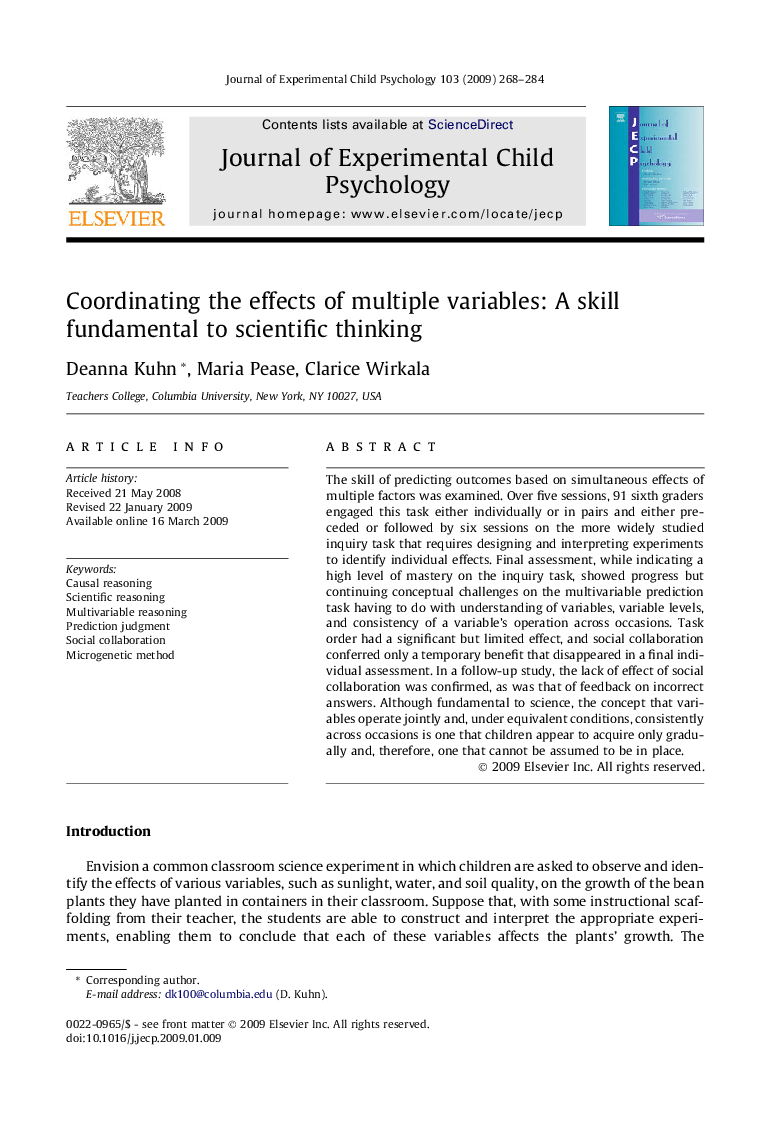| Article ID | Journal | Published Year | Pages | File Type |
|---|---|---|---|---|
| 918591 | Journal of Experimental Child Psychology | 2009 | 17 Pages |
The skill of predicting outcomes based on simultaneous effects of multiple factors was examined. Over five sessions, 91 sixth graders engaged this task either individually or in pairs and either preceded or followed by six sessions on the more widely studied inquiry task that requires designing and interpreting experiments to identify individual effects. Final assessment, while indicating a high level of mastery on the inquiry task, showed progress but continuing conceptual challenges on the multivariable prediction task having to do with understanding of variables, variable levels, and consistency of a variable’s operation across occasions. Task order had a significant but limited effect, and social collaboration conferred only a temporary benefit that disappeared in a final individual assessment. In a follow-up study, the lack of effect of social collaboration was confirmed, as was that of feedback on incorrect answers. Although fundamental to science, the concept that variables operate jointly and, under equivalent conditions, consistently across occasions is one that children appear to acquire only gradually and, therefore, one that cannot be assumed to be in place.
